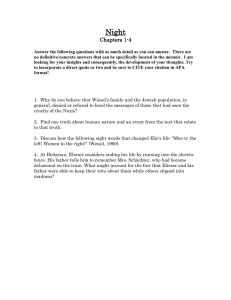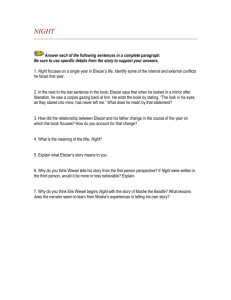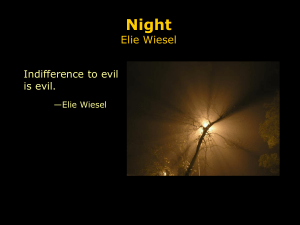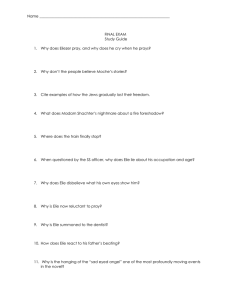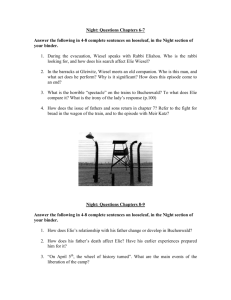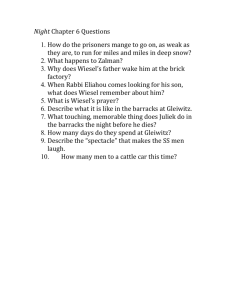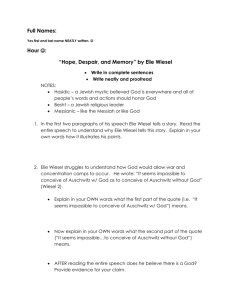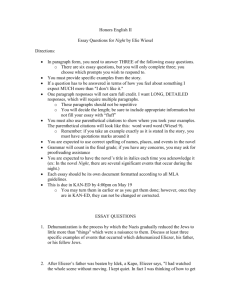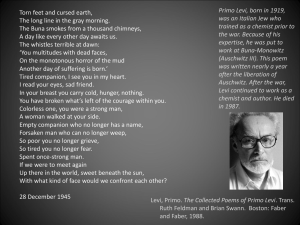assignment sheet
advertisement
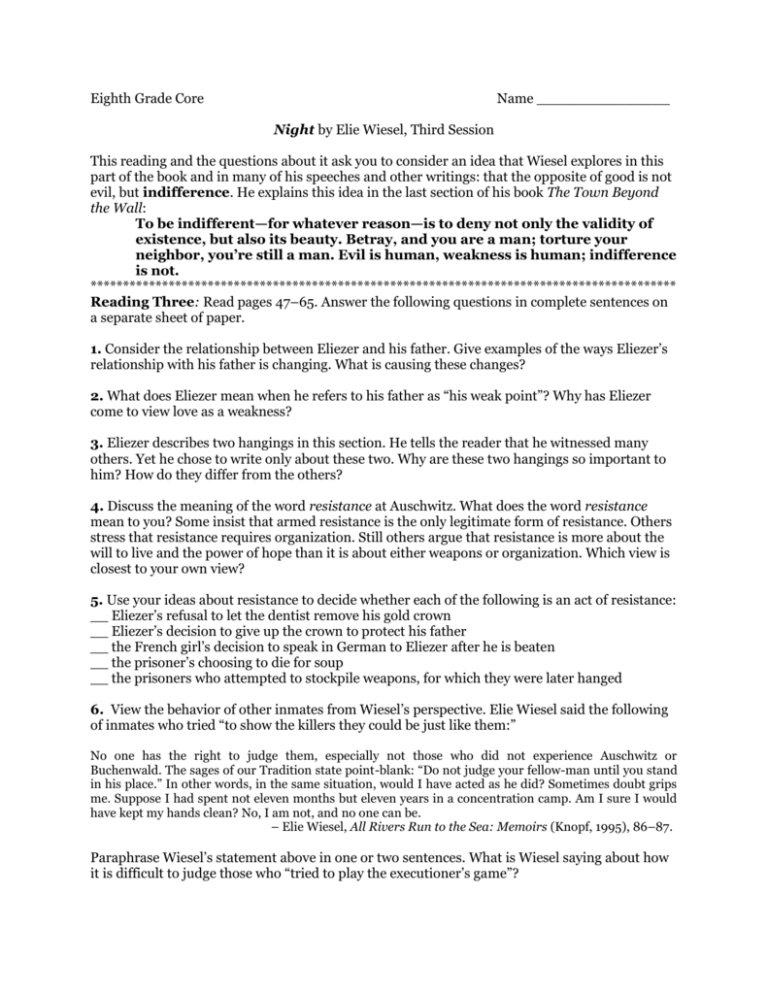
Eighth Grade Core Name _______________ Night by Elie Wiesel, Third Session This reading and the questions about it ask you to consider an idea that Wiesel explores in this part of the book and in many of his speeches and other writings: that the opposite of good is not evil, but indifference. He explains this idea in the last section of his book The Town Beyond the Wall: To be indifferent—for whatever reason—is to deny not only the validity of existence, but also its beauty. Betray, and you are a man; torture your neighbor, you’re still a man. Evil is human, weakness is human; indifference is not. ****************************************************************************************** Reading Three: Read pages 47–65. Answer the following questions in complete sentences on a separate sheet of paper. 1. Consider the relationship between Eliezer and his father. Give examples of the ways Eliezer’s relationship with his father is changing. What is causing these changes? 2. What does Eliezer mean when he refers to his father as “his weak point”? Why has Eliezer come to view love as a weakness? 3. Eliezer describes two hangings in this section. He tells the reader that he witnessed many others. Yet he chose to write only about these two. Why are these two hangings so important to him? How do they differ from the others? 4. Discuss the meaning of the word resistance at Auschwitz. What does the word resistance mean to you? Some insist that armed resistance is the only legitimate form of resistance. Others stress that resistance requires organization. Still others argue that resistance is more about the will to live and the power of hope than it is about either weapons or organization. Which view is closest to your own view? 5. Use your ideas about resistance to decide whether each of the following is an act of resistance: __ Eliezer’s refusal to let the dentist remove his gold crown __ Eliezer’s decision to give up the crown to protect his father __ the French girl’s decision to speak in German to Eliezer after he is beaten __ the prisoner’s choosing to die for soup __ the prisoners who attempted to stockpile weapons, for which they were later hanged 6. View the behavior of other inmates from Wiesel’s perspective. Elie Wiesel said the following of inmates who tried “to show the killers they could be just like them:” No one has the right to judge them, especially not those who did not experience Auschwitz or Buchenwald. The sages of our Tradition state point-blank: “Do not judge your fellow-man until you stand in his place.” In other words, in the same situation, would I have acted as he did? Sometimes doubt grips me. Suppose I had spent not eleven months but eleven years in a concentration camp. Am I sure I would have kept my hands clean? No, I am not, and no one can be. – Elie Wiesel, All Rivers Run to the Sea: Memoirs (Knopf, 1995), 86–87. Paraphrase Wiesel’s statement above in one or two sentences. What is Wiesel saying about how it is difficult to judge those who “tried to play the executioner’s game”?
